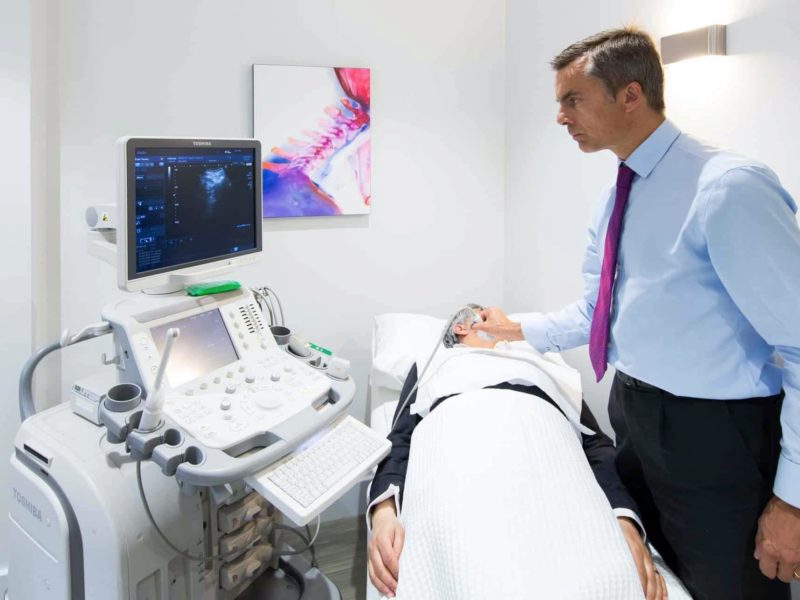Occupational health is a broad field that covers the health of people at work. It’s aim is to ensure that employees and employers are healthy and to limit anything potentially harmful in the environment. Focusing on occupational health can benefit organisations by creating a healthy workforce, improving productivity and demonstrating that they have their employees’ best interest at heart.
Because there are countless types of work and work environment, occupational health research looks into a broad range of issues. This includes how ergonomic the environment is, the safety of commutes, workplace bullying, mental health, sun exposure, radiation, substance abuse, how the environment should be set up to accommodate different disabilities.
In this post we will cover the latest trends and developments relating to occupational health in corporate environments.
Why is occupational health important?
Occupational health plays several roles in the workplace, including:
- Assessing the effect of work on employees, such as carrying out risk assessments, and controlling these effects.
- Making sure that disabled people and people with health conditions are not discriminated against and receive any adjustments that they might need to help them do their job.
- Ensuring that employees are fit to do their work.
- Keeping workplaces healthy and safe.
- Promoting the health and wellbeing of workers at work and sometimes outside of work too.
- Prevention to help employees avoid taking absences for sickness or injury.
- Assisting with recovery from illness or injury while at work and supporting workers when they return to work after a period of absence.

Occupational health measures can help employees with both their physical and mental health. Here are the latest trends and developments in corporate occupational health:
Combatting stress and burnout
Burnout is listed as an “occupational phenomenon” in the International Classification of Diseases and is defined as resulting from chronic workplace stress that hasn’t been managed successfully. It includes feelings of exhaustion, increased mental distance from or cynicism about your job, and reduced professional efficacy. Burnout and stress in the workplace are subjects that have begun to receive more attention than ever. Burnout itself may be nothing new, but more and more companies are beginning to recognise it and how important it is to address it as a real problem.
23% of employees reported feeling burned out at work either ‘often’ or ‘always’ in a Gallup study, and a further 44% said they felt burned out sometimes. One company trying to tackle this problem is Deloitte. They are using real-time data to address burnout through an online dashboard that collects data to determine when someone might need to take a break. Of course, not all companies need to have a custom-made dashboard to monitor their employees’ activity. Some employers are offering counselling services or developing burnout prevention programmes.

Promoting work/life balance
Work/life balance is another key issue in occupational health. Previously, many employers might not have concerned themselves with the personal lives and other commitments of their employees. Many would encourage employees to put in as many hours as possible to show their dedication. However, there is a trend towards recognising the importance of a healthy work/life balance, both for the employees’ wellbeing and because it lends itself to better mental health and productivity. More and more workers seek employment that allows them to maintain balance between their job and personal commitments
Measures taken to improve work/life balance can include changes to the working week and working hours. Some companies have experimented with a four-day working week, although most are unlikely to go that far. Employees in the UK have the right to ask for flexible working, which might include changing the times when they start and finish work, part-time hours, and other measures that can help them to fit their work around commitments such as children and other care duties. Remote working is also becoming more common, allowing people to work more flexibly.
The changing role of the manager
Bestselling author Dan Schwebel includes managers taking on a new role in his top 10 workplace trends for 2020. He says that managers need to be more human, “less machine”, and improve their soft skills. Instead of focusing primarily on admin tasks, managers should transition to focus more on people. Dan explains managers should make use of the skills that computers or AI cannot offer, such as using their empathy to relate to their team and helping them to develop at work. Through this they can provide support for them.

The importance of well-being benefits
Health and wellbeing benefits help to attract new talent and retain existing employees. They can include a range of offerings, from private health insurance to counselling to preventative health assessments.
Health Assessments are an excellent investment for executives or senior employees. It will ensure that they are in great physical health and thus reduce absences as well as increase productivity and employee engagement. Additionally, the provision of Health Assessments to employees is a tax-deductible expense.
Echelon Health offers the most comprehensive preventative Health Assessments in London. Through a detailed medical history, ECG, blood tests and combined scanning techniques our Premium Health Assessment is unrivalled and can detect for 92% of the diseases that lead to premature death. This figure is 96% in women. We are proud to provide Health Assessments to a wide range of corporate clients, to view our case studies, click here.
If a health assessment does detect a health problem, rest assured Echelon Health have a ‘little black book’ of the best specialist consultants who will help treat the problem. Early detection saves lives; this is the core of our philosophy. So, if a health problem is detected, it will often be easier to treat than it would be had the employee continued on as normal until symptoms arose.
The covid-19 pandemic has shone a light on the issue of poor underlying health in the population. Today it is more important than ever to look after our own health and the health of our workplace. Therefore, there has never been a better time for firms and corporations to invest in preventative Health Assessments.
Make an Enquiry
Sources
NHS Health at work – Research Plus April/May 2017
WHO – Burn-out an “occupational phenomenon”: International Classification of Diseases
Gallup – Employee Burnout, Part 1: The 5 Main Causes
Forbes – How Deloitte is addressing employee burnout with real-time data
The Guardian – Microsoft Japan tested a four-day work week and productivity jumped by 40%
LinkedIn – The Top 10 Workplace Trends for 2020 – Dan Schawbel



